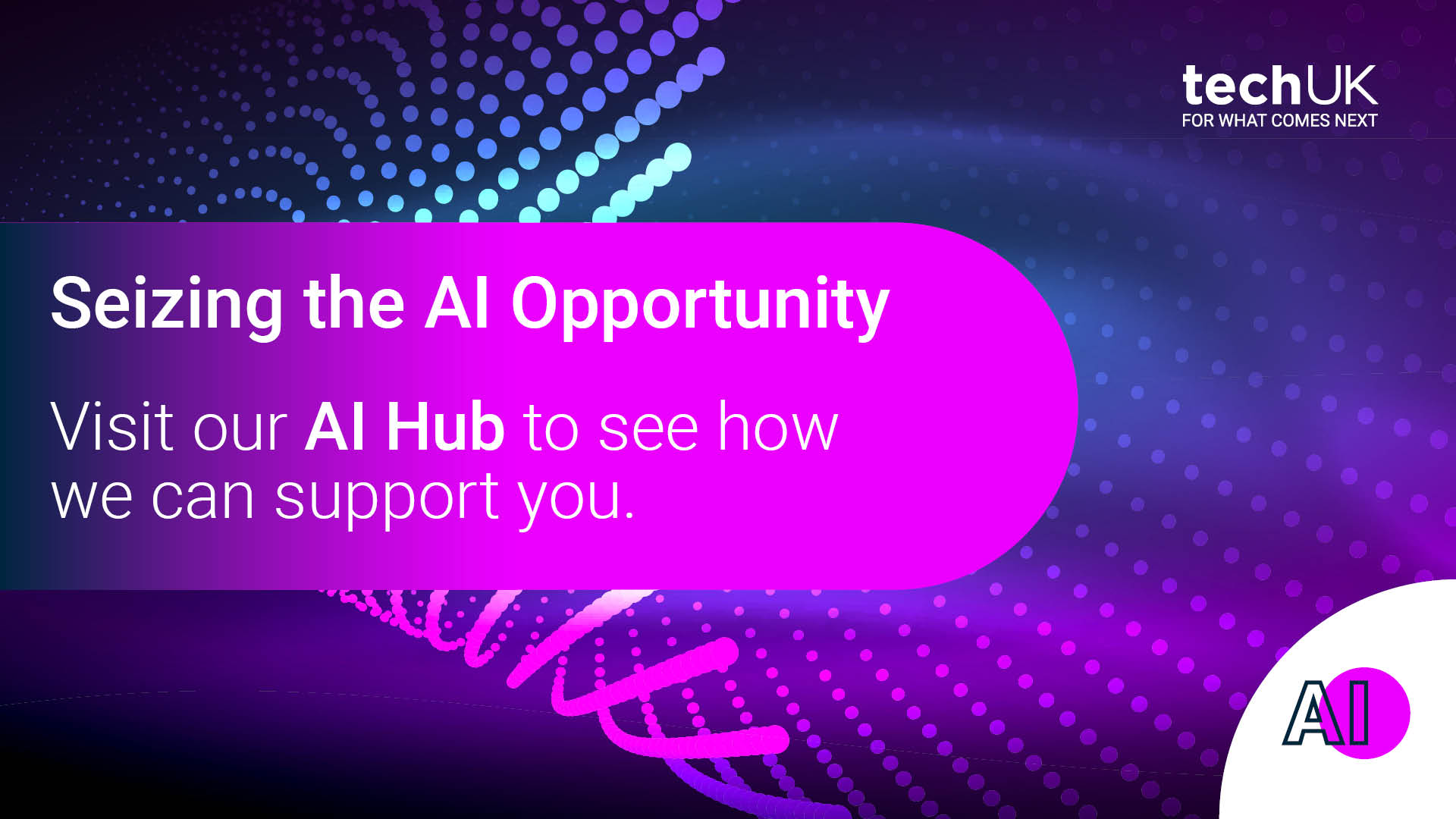The top five sectors using AI most and the opportunities that await
In recent months, many people have started turning to Artificial Intelligence (AI) technologies to lend a helping hand in their daily lives, whether that’s searching for recipe inspiration on ChatGPT or editing a photo before posting it on Instagram. From a professional perspective more specifically, the growing presence of accessible AI tools in the workplace has sparked both concern around job security and optimism around how AI could support certain jobs and improve productivity, but whose using AI most and to what end?
Our research reveals the top five professions where workers are incorporating AI tools into their roles; I spoke to a range of our career experts to get their insights on the potential opportunities these rapidly advancing technologies could have on their sector and the wider world of work:
-
Marketing
With over half (54%) of marketers having utilised an AI tool in their current role, it’s clear that AI adoption is on the rise across marketing teams. But what opportunities does AI really present to marketers? Verity Slade, Business Director at Hays specialising in Marketing and Communications, says: “AI has evidently taken the marketing sector by storm, as more marketers are using AI tools in their everyday roles than any other profession. Despite some concerns of the threat AI could have in terms of replacing marketing professionals, uptake is set to continue as professionals gradually navigate and reap the rewards of AI.”
Verity continues: “Marketers are already beginning to take advantage of AI tools to aid certain tasks in an efficient and productive way. For instance, some content writers use Microsoft Copilot to research topics prior to writing a piece of content, to gather relevant information all in one place relevantly quickly and to expand their knowledge and perception. They can still put their skills and creativity to good use when it comes to writing and crafting a piece of content for example, which is encouraged, but AI can speed up and enhance the process, particularly at the research and planning stage.
Social media professionals can also turn to AI to help draft captions, to source inspiration and explore other ways of articulating the information they have to convey to their audience in an informative and engaging way. These are just a couple of different scenarios where AI is a valuable tool for aiding the day-to-day role of a marketer which only just scratch the surface, as there are a multitude of ways AI technologies can support marketing professionals today such as improved customer insights, SEO optimisation and predictive analytics.
Ultimately, AI has the power to open up many opportunities for current, as well as aspiring marketers, in the field. It’s about finding a balance between adopting AI and being attuned to the ways AI can make our roles more fulfilling whilst also having a positive impact on business outcomes, whilst simultaneously tapping in to our unique, human-centric capabilities.”
-
Technology
Following marketers, more than a third (39%) of technology professionals have already used an AI tool in their current role. Although tech is of course a very broad industry, we’re seeing AI play a significant part across the cyber security landscape. James Walsh, Director at Hays UK&I specialising in Cyber Security tells us more: “As it stands, the rapidly evolving nature of AI is exacerbating the risk of cyber-attacks in terms of both volume and sophistication. However, the growing power of AI means that skilled cyber security professionals are in high demand, therefore opening up an array of opportunities for professionals already working in the space and those aspiring to break into the industry.
AI could be used to fight back, so talented cyber professionals who are equipped to utilise AI and armed with a crucial awareness of the risks and limitations will be incredibly sought after by employers. The right AI tools can help cyber professionals to identify, manage and prevent threats and vulnerabilities, and automate repetitive tasks to improve accuracy and efficiency.
Although there are mixed beliefs amongst employers on whether AI tools will replace cyber security professionals and impact headcount, the evidence points towards a more positive outlook, that the ongoing development of AI will create new jobs across the cyber landscape such as roles that are solely dedicated to working on AI-driven security solutions. To be able to truly take advantage of what AI has to offer, the trick is to invest in training, development and upskilling.”
-
Education
Our research shows that two in ten (20%) professionals working across the education sector have used AI in their current role so far, but how might AI continue to create opportunities for this particular workforce? Paul Matthias, National Director at Hays specialising in Education, says: “In the face of these developments in technology, the priority across the education sector remains the same - to protect pupils and staff and to deliver high quality education.
If used responsibly, AI has the potential to transform education, by granting teachers instant access to content, resources and inspiration in order to plan engaging, insightful and innovative lessons for example. Admin tasks such as tracking attendance could also be automated by AI, freeing up time to dedicate to high value tasks. Technology certainly supports education in the classroom, to motivate students, accommodate different learning needs and prepare students for successful careers in our digital age. Embracing AI enables both teaching professionals and students to upskill, to master the digital skills they need today to future-proof their careers.”
-
Accountancy and finance
Just 16% of professionals working in accountancy and finance have so far reached for an AI tool in role which suggests uptake is slow but steady. Lorraine Twist, Director at Hays specialising in Accountancy and Finance, elaborates: “If professionals are equipped with the necessary skills, knowledge and mindset, the opportunities AI could bring are endless. AI tools can support staff to manage and analyse large amounts of data quickly, efficiently and accurately, reduce human error, interpret past data to form a reliable picture of future trends, automate certain tasks, thus freeing up time for more creative and strategic initiatives, improve research on accounting standards, enhance fraud detection and prevention and much more.
Working alongside AI can help to improve productivity and simultaneously stretch the realms of what we as human beings can achieve, giving finance professionals the opportunity to work smarter not harder.”
-
Engineering
Similarly, 16% of engineering professionals have turned to AI tools to assist with their current role; is this set to rise and in what ways could AI benefit the engineering industry? Paul Gibbens, Director at Hays specialising in Engineering, explains: “Welcoming AI into the engineering sector presents a range of exciting possibilities. For instance, AI-powered design tools can streamline and optimise the design process which is both cost-effective and time-efficient. We are also seeing an increase in the adoption of automation and robotics. As AI development shows no signs of slowing down, the demand for engineering professionals who are AI literate and have an enthusiasm to learn and grow their skills will increasingly be in high demand.
As the presence of AI tools increases, engineers have the opportunity to adapt and tap into the various ways in which their day-to-day roles can be enhanced. Not only will AI transform already existing roles for the better, but it is bound to create new ones and open doors for professionals to leave their mark in the ever-evolving engineering space, so long as they dedicate the time to understand AI and upskill accordingly.”
Final thoughts
The valuable insights from our industry experts and our research demonstrate the pivotal role AI is starting to play across the world of work. There will undoubtedly be challenges to navigate and overcome as AI continues to be advanced at such a pace, but this change will also spark opportunities for professionals and jobseekers to thrive in their chosen area. Although much uncertainty remains, employers and professionals who are adaptable, optimistic yet careful and who have their ear to the ground in order to unlock the benefits of AI will be likely to succeed in this AI era.
Dive deeper with more AI insights:
If you're interested in AI adoption you can find more insights on our AI Campaign Week page, here:

Stay up to date with techUK AI Adoption work:
To help promote greater levels of responsible AI adoption, techUK is working alongside its members and key stakeholders across the AI ecosystem to demonstrate the significant benefits of this technology for both the economy and society. The best way to stay up to date with our work is to visit our AI Adoption Hub.
Call for AI Adoption case studies:
As part of techUK’s 2024 AI Campaign Week, we are launching a call for techUK member case studies, to demonstrate how organisations are tackling the barriers to AI adoption to maximise AI's potential. These case studies will be showcased to UK organisations that are also embarking on their AI adoption journeys, providing them with practical examples and insights to guide their Putting AI into Action efforts. Learn more here.
techUK - Seizing the AI Opportunity
The UK is a global leader in AI innovation, development and adoption.
AI has the potential to boost UK GDP by £550 billion by 2035, making adoption an urgent economic priority. techUK and our members are committed to working with the Government to turn the AI Opportunities Action Plan into reality. Together we can ensure the UK seizes the opportunities presented by AI technology and continues to be a world leader in AI development.
Get involved: techUK runs a busy calendar of activities including events, reports, and insights to demonstrate some of the most significant AI opportunities for the UK. Our AI Hub is where you will find details of all upcoming activity. We also send a monthly AI newsletter which you can subscribe to here.
Upcoming AI Events
Latest news and insights
Subscribe to our AI newsletter
AI and Data Analytics updates
Sign-up to our monthly newsletter to get the latest updates and opportunities from our AI and Data Analytics Programme straight to your inbox.
Contact the team
Visit our AI Hub - the home of all our AI content:

Enquire about membership:












